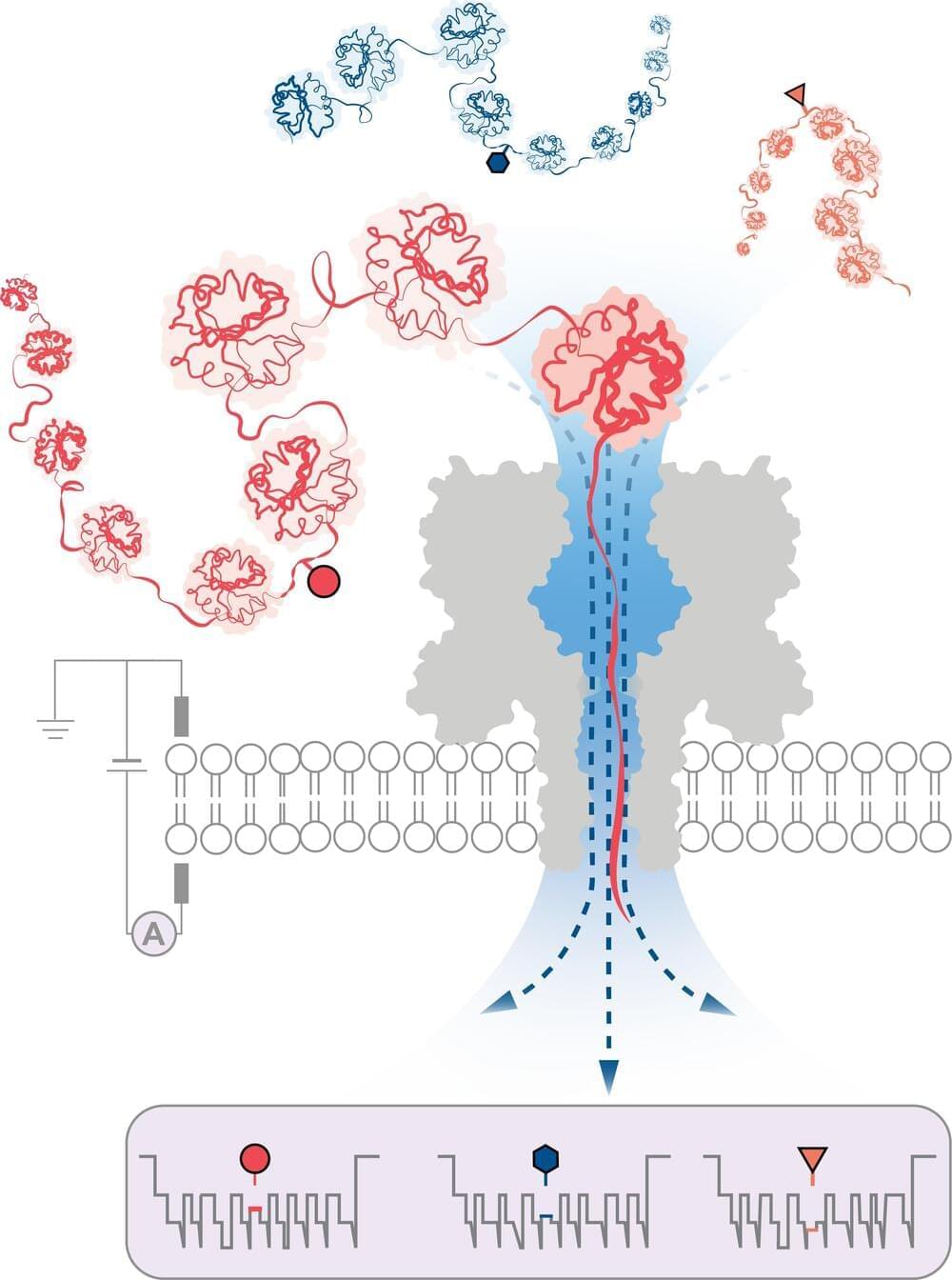A team of scientists led by the University of Oxford have achieved a significant breakthrough in detecting modifications on protein structures. The method, published in Nature Nanotechnology, employs innovative nanopore technology to identify structural variations at the single-molecule level, even deep within long protein chains.
Human cells contain approximately 20,000 protein-encoding genes. However, the actual number of proteins observed in cells is far greater, with over 1,000,000 different structures known. These variants are generated through a process known as post-translational modification (PTM), which occurs after a protein has been transcribed from DNA.
PTM introduces structural changes such as the addition of chemical groups or carbohydrate chains to the individual amino acids that make up proteins. This results in hundreds of possible variations for the same protein chain.
